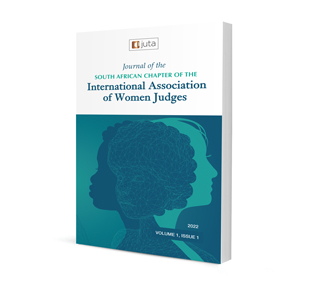Gender-based violence and the judiciary: Reflections on the role of the courts in safeguarding the dignity, safety and freedom of women

Gender-based violence and the judiciary: Reflections on the role of the courts in safeguarding the dignity, safety and freedom of women
Author: Leona Theron
ISSN: 2958-4973
Affiliations: Justice of the Constitutional Court of the Republic of South Africa
Source: Journal of the South African Chapter of the International Association of the Women Judges, Issue 1, 2022, p. 1-18
https://doi.org/10.47348/JSAC-IAWJ/2023/a1
Abstract
The number of reported cases of sexual offences is rapidly increasing in South Africa. Parliament has responded to this phenomenon by making various important legislative reforms. Our Constitution recognises, however, that beyond legislative reform, our courts must ensure the transformation of society to ensure that South Africa truly belongs to all who live in it. This means that the courts must confront patriarchal norms entrenched in South Africa’s criminal justice system and in the law itself. The courts have responded to this challenge with commendable vigour. The most recent development is the Constitutional Court’s decision in Tshabalala v S. This case demonstrates the role that our courts can and must play during the ‘pandemic’ of sexual and gender-based violence.